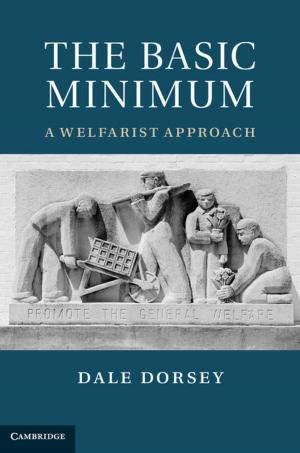Foundations of Ergodic Theory
Nonfiction, Science & Nature, Mathematics, Mathematical Analysis, Science| Author: | Marcelo Viana, Krerley Oliveira | ISBN: | 9781316444139 |
| Publisher: | Cambridge University Press | Publication: | February 15, 2016 |
| Imprint: | Cambridge University Press | Language: | English |
| Author: | Marcelo Viana, Krerley Oliveira |
| ISBN: | 9781316444139 |
| Publisher: | Cambridge University Press |
| Publication: | February 15, 2016 |
| Imprint: | Cambridge University Press |
| Language: | English |
Rich with examples and applications, this textbook provides a coherent and self-contained introduction to ergodic theory, suitable for a variety of one- or two-semester courses. The authors' clear and fluent exposition helps the reader to grasp quickly the most important ideas of the theory, and their use of concrete examples illustrates these ideas and puts the results into perspective. The book requires few prerequisites, with background material supplied in the appendix. The first four chapters cover elementary material suitable for undergraduate students – invariance, recurrence and ergodicity – as well as some of the main examples. The authors then gradually build up to more sophisticated topics, including correlations, equivalent systems, entropy, the variational principle and thermodynamical formalism. The 400 exercises increase in difficulty through the text and test the reader's understanding of the whole theory. Hints and solutions are provided at the end of the book.
Rich with examples and applications, this textbook provides a coherent and self-contained introduction to ergodic theory, suitable for a variety of one- or two-semester courses. The authors' clear and fluent exposition helps the reader to grasp quickly the most important ideas of the theory, and their use of concrete examples illustrates these ideas and puts the results into perspective. The book requires few prerequisites, with background material supplied in the appendix. The first four chapters cover elementary material suitable for undergraduate students – invariance, recurrence and ergodicity – as well as some of the main examples. The authors then gradually build up to more sophisticated topics, including correlations, equivalent systems, entropy, the variational principle and thermodynamical formalism. The 400 exercises increase in difficulty through the text and test the reader's understanding of the whole theory. Hints and solutions are provided at the end of the book.















